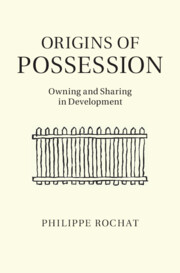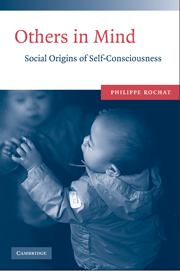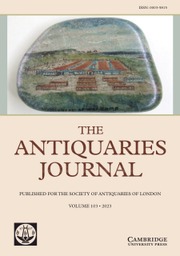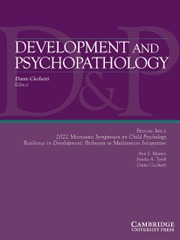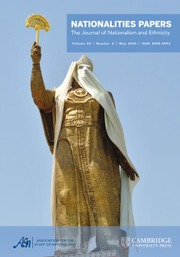Origins of Possession
Owning and Sharing in Development
- Author: Philippe Rochat, Emory University, Atlanta
- Date Published: December 2015
- availability: Available
- format: Paperback
- isbn: 9781316502815
Paperback
Other available formats:
Hardback, eBook
Looking for an inspection copy?
This title is not currently available on inspection
-
Human possession psychology originates from deeply rooted experiential capacities shared with other animals. However, unlike other animals, we are a uniquely self-conscious species concerned with reputation, and possessions affect our perception of how we exist in the eyes of others. This book discusses the psychology surrounding the ways in which humans experience possession, claim ownership, and share from both a developmental and cross-cultural perspective. Philippe Rochat explores the origins of human possession and its symbolic development across cultures. He proposes that human possession psychology is particularly revealing of human nature, and also the source of our elusive moral sense.
Read more- Deals with the complex and emotionally charged psychology surrounding possession, property, ownership and sharing
- Discusses the extent to which culture determines variations in possession psychology
- Provides a novel take on the origins of the human sense of right and wrong and the primary reasons and functions of morality and sharing with others
Reviews & endorsements
'Throughout his work, Philippe Rochat attempts to identify what is uniquely human. In this book he yet again moves one step closer to a truly intellectually satisfying description. Origins of Possession is essential reading for all those of us who are in the profession of working with the human mind, particularly when it is troubled and is at risk of losing its essential qualities of self-awareness and symbolization. It is a highly significant contribution which builds on Rochat's unparalleled depth of understanding of child development to deliver a view of the nature and experience of possession that transcends development and individual differences - and illuminates both - whilst striking very close to what lies at the core of our experience of ourselves and of others as sentient beings.' Peter Fonagy, Freud Memorial Professor of Psychoanalysis and Head, Research Department of Clinical, Educational and Health Psychology, University College London
See more reviews'This is a rare, unique, and exciting book that could not have been written except by a scientist who, like Darwin, has travelled to diverse places and made the insightful observations that open a new perspective on everything of concern to human psychology. Rochat probes a concept so central and pervasive that it is commonplace: possession. He develops a psychology that penetrates deeply into philosophical and ethical realms, and that raises questions that to my knowledge have not been raised before about issues relevant to the development of the most important aspects of social life, issues that pertain to something so basic that it drives sex and violence and has the potential to realign our understanding of economics, law and social formation, as well as individual existence.' Shaun Gallagher, Lillian and Morrie Moss Professor of Excellence, University of Memphis
'Philippe Rochat has been studying children across cultures with a unique combination of curiosity, empathy, and insight. This important book challenges our understanding of their psychology - and of human psychology generally - and opens new directions of research. A highly pleasurable and stimulating read!' Dan Sperber, author of Explaining Culture, and co-author of Meaning and Relevance
'One might think that the topic of possession is clearly delimited and somewhat specialized. In this masterful work Rochat shows that nothing could be farther from the truth. Possession, as Rochat conceives it, is an integral part of all of the most important aspects of human experience. A most enlightening piece of work - and a joy to read.' Michael Tomasello, Co-Director, Max Planck Institute for Evolutionary Anthropology
'Relying on Rousseau's 'Second Discourse', Rochat shows how the idea of property led humans to abandon a natural state of sharing with all other animals to a state in which claims of ownership, combined with the acceptance of such claims by others, set a new standard for civil society based on possession. Rochat creates a fascinating discourse by integrating ideas from philosophy, biology, sociology, and anthropology to understand the development of laws of property in Western and non-Western cultures and the impact of these cultural systems on the psychological development of a sense of possession across the life span … Summing up: highly recommended. Upper-division undergraduates through faculty and professionals.' R. B. Stewart, Jr, Choice
Customer reviews
Not yet reviewed
Be the first to review
Review was not posted due to profanity
×Product details
- Date Published: December 2015
- format: Paperback
- isbn: 9781316502815
- length: 336 pages
- dimensions: 230 x 153 x 20 mm
- weight: 0.5kg
- contains: 2 tables
- availability: Available
Table of Contents
Introduction: making sense of human possession
Part I. Psychology: Principles of Human Possession:
1. Experiencing possession
2. Claiming ownership
3. Possession and ownership transfer
4. Symbolic spinoffs of possession
Part II. Development: Human Ontogeny of Possession:
5. First possession
6. Ownership in development
7. Sharing in development
Part III. Culture: Human Possession in Context:
8. Culture and possession
9. Possession in children across cultures
Conclusion: great transformation.
Sorry, this resource is locked
Please register or sign in to request access. If you are having problems accessing these resources please email [email protected]
Register Sign in» Proceed
You are now leaving the Cambridge University Press website. Your eBook purchase and download will be completed by our partner www.ebooks.com. Please see the permission section of the www.ebooks.com catalogue page for details of the print & copy limits on our eBooks.
Continue ×Are you sure you want to delete your account?
This cannot be undone.
Thank you for your feedback which will help us improve our service.
If you requested a response, we will make sure to get back to you shortly.
×
